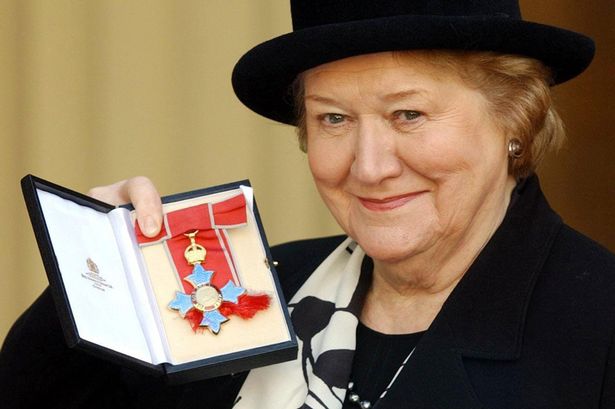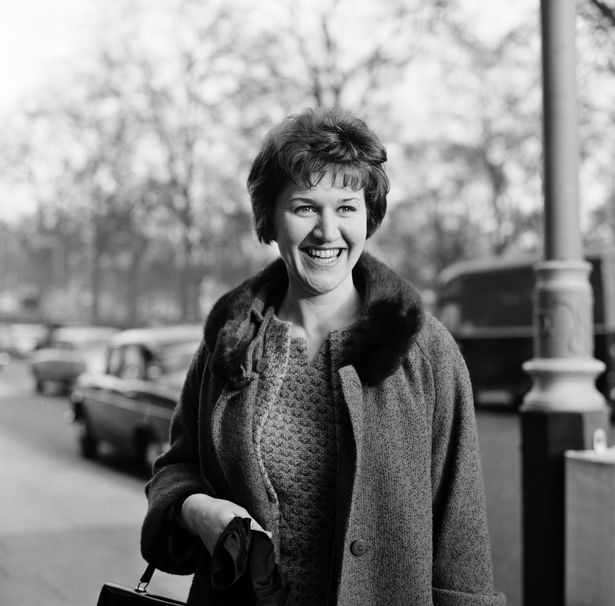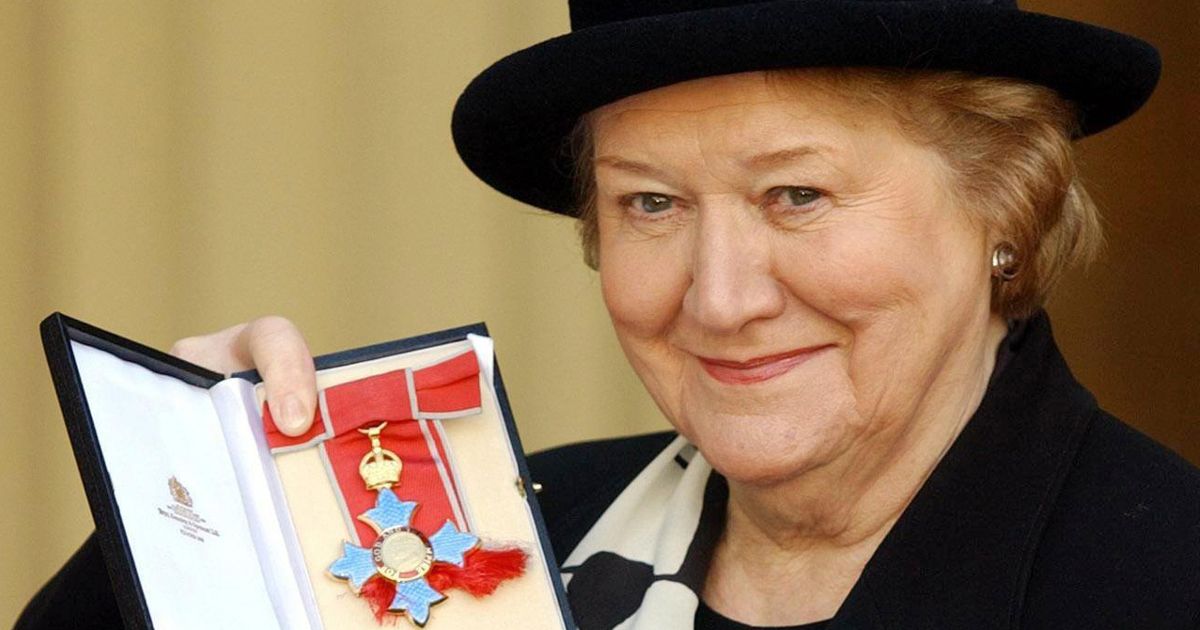The Keeping Up Appearances star died yesterday at the age of 96Dan Haygarth Liverpool Daily Post Editor and Regeneration Reporter
13:21, 04 Oct 2025
 Patricia Routledge pictured in 2004, when she was made a Dame for services to the theatre and charity(Image: Matthew Fearn/PA Wire)
Patricia Routledge pictured in 2004, when she was made a Dame for services to the theatre and charity(Image: Matthew Fearn/PA Wire)
Dame Patricia Routledge went on to become a household name through her role in BBC sitcom Keeping Up Appearances but her career began at a Liverpool theatre. Dame Patricia was born in Tranmere on February 17, 1929 and attended Mersey Park Primary School, and subsequently Birkenhead High School where she sang in the choir and ran the Sunday School.
She later went on to study at Liverpool University where she graduated with honours in English Language and Literature before attending the Bristol Old Vic Theatre School and London’s Guildhall School of Music. She made her professional debut at the Liverpool Playhouse in A Midsummer Night’s Dream in the 1950s.
She died at the age of 96 yesterday, Friday October 3. A statement from her agent said: “We are deeply saddened to confirm the passing of Dame Patricia Routledge, who died peacefully in her sleep this morning surrounded by love.
“Even at 96 years old, Dame Patricia’s passion for her work and for connecting with live audiences never waned, just as new generations of audiences have continued to find her through her beloved television roles.
“She will be dearly missed by those closest to her and by her devoted admirers around the world.”
Her career began at the Playhouse, where she started as an assistant stage manager, before she began acting on that stage. Paying tribute to her, a spokesperson for The Playhouse yesterday told the ECHO: “We are deeply saddened to hear of the passing of Dame Patricia Routledge.
“Born in Birkenhead, Patricia began her professional journey here at the Liverpool Playhouse in 1952, not as the star she would later become, but as an assistant stage manager — “sweeping the stage,” as she fondly remembered in Ros Merkin’s ‘Liverpool Playhouse: A Theatre and its City’.
“From those first steps backstage, she grew into one of Britain’s most treasured actors, her unforgettable performances making her a household name.
 Patricia Routledge, pictured in London in 1966(Image: Mirrorpix)
Patricia Routledge, pictured in London in 1966(Image: Mirrorpix)
“We were honoured to welcome Patricia back to the Playhouse in 2011, during our centenary year, when she joined us for the launch of Ros’s book and shared her memories of starting out with us.
“Patricia’s talent, wit, and warmth touched so many, and her legacy will always be part of the Playhouse story.
“The lights at Liverpool Playhouse this evening will be dimmed in her memory.”
Here, we bring you the aforementioned extract from Ros Merkin’s ‘Liverpool Playhouse: A Theatre and its City’, in which Dame Patricia reflected on the start of her career in Liverpool.
Starting out: Patricia Routledge. Taken from ‘Liverpool Playhouse, a theatre and its city’ by Ros Merkin
A year after graduating in English from the University of Liverpool, I auditioned for Willard Stoker on a bright, late spring afternoon in 1952 and was taken on as an unpaid Assistant Stage Manager for the 1952–3 season. (I believe that previously a premium had to be paid for this apprenticeship.)
It was still a prestigious repertory company, (some of the resident staff still spoke glowingly of “the days of William Armstrong”) and it was able to provide a varied programme of plays – Shakespeare, Coward, Maugham, Lonsdale, Guthrie, Bridie, Sam Spewack, Emlyn Williams – each production playing for three weeks; a luxury enjoyed by only two other repertory companies: Manchester and Birmingham.
An ASM in those days was a general dogsbody and you knew your place! I can honestly say that I began my professional life sweeping the stage.
On my first morning I was assigned the task of cleaning out a dusty, chaotic space full of discarded furniture, old props, boxes of scripts and cobwebs – an area that was to become the actors’ green room.
The duties of an ASM were multiple and various: attending all rehearsals; occasionally undertaking the hazardous responsibility of prompter; assisting the designer in buying and sometimes making props; preparing stage food and drink when necessary; working the panatrope for sound effects and music; which involved placing the needle on the exact spot of the vinyl record then judiciously bringing up the volume and, most important of all, “calling” the actors to be on stage in time for their entrances.
This entailed running the length of backstage corridors (since there was no tannoy system), knocking on dressing room doors, giving the summons to “Mr” or “Miss” so-and-so and waiting for the acknowledgement that they had accepted the “call”. The ASM was answerable to the Stage Director, in this case a brilliant, acerbic and volatile Irishman, Charles Blair, who would take the rap for anything his ASM had failed to do and then carpet the offender with extreme patience and sensitivity.
The Stage Manager (a kind and courteous Andrew Sachs at that time), would also help keep the ASM on track. The hierarchy of the company was as follows: Leading Lady, Leading Man, who were each obliged to provide their own basic wardrobe: a couple of evening dresses and a suit for the leading lady and dinner jacket and one good suit for the gentleman; senior character actors, male and female, two ingénues and two junior character actors. Other roles would be filled by visiting actors and (fortunately for me) the ASM.
Lighting then was very unsubtle, so make-up (skin-tone Leichner sticks 5 and 9 with Lake Liner for wrinkles and shadows, together with wigs, until Wig Creations came along) was fairly crude.
Ticket prices ranged from a shilling (5p in today’s money) to seven shillings and sixpence (37½p), and during the intervals (usually two) tea would be served in the stalls, the danger being that the rattle of china on trays could well cut across the focus of the ensuing scene!
After three months I was called into the general manager’s office (the formidable, legendary Maud Carpenter), who enquired as to whether I “liked being here at the Playhouse”. “Oh yes, Miss Carpenter,” I unhesitantly replied. “Well,” she said, “You seem a sensible sort of girl, would you like to come into the company? I’ll pay you £5 a week.” “Oh yes, Miss Carpenter!”
It was a season of great opportunity for me; playing a variety of roles (to some of which I was unsuited!), watching, learning, finding a discipline, realising how much the practical, technical contributions of stage management are essential to the whole; making mistakes, making progress, facing disappointment and relishing the thrill of being part of live theatre.
